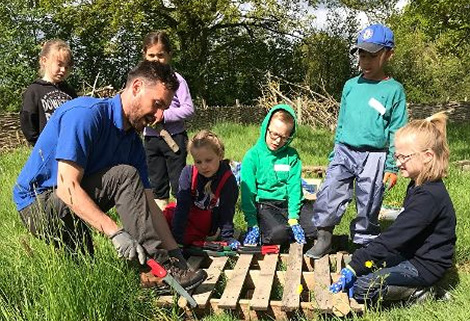iwa waterways for today
benefits to local communities
IWA’s Waterways for Today report highlights the benefits of the waterways to the LOCAL COMMUNITY
Having looked at both the economic and environmental benefits of the waterways, we are now looking at the benefits for the LOCAL COMMUNITY as outlined in the IWA’s recently launched report – Waterways for Today, which highlights 12 Major Benefits of Britain’s Inland Waterways network.
The benefits for the local communities are wide ranging. They create active travel corridors that connect communities and provide free, inclusive and level routes for walking, jogging, cycling and more.
Connecting Communities
Due to their industrial past, the waterways often run through towns and cities, providing traffic-free passage for residents to get out into the countryside and vice-versa. Those in more rural areas can use the towpaths for easy access into towns and villages. Within cities, the waterways should be considered as sustainable transport networks, contributing towards zero carbon, economic recovery and changing behaviour patterns.

The regeneration of inland waterways can spur local communities into taking ownership of “their” river or canal, seeing it as a community asset that needs to be protected and improved. It provides a sense of place and civic pride. This is particularly true since the Covid pandemic, where many people discovered their local waterways for the first time and began to realise what a positive environment it can be.
Education and Inspiration for Young People
The inland waterways offer real hands-on education opportunities particularly in science, technology and maths subjects but also humanities and the arts. Outdoor classrooms and visits to local waterways provide a unique opportunity for school-aged children to see the built and natural heritage of their waterway – at near zero cost to the education budget. The waterways can bring history to life for young people.

Creating Jobs, Training and Apprenticeships
It's not just school-aged children that benefit from visiting the inland waterways, the learning can be inter-generational and they can provide opportunities for employment, training and apprenticeships. These include jobs in tourism and leisure or the hospitality sector. Restoration projects also offer training and work experience opportunities. Often run by volunteers, restoration sites must comply with all construction, environmental, heritage, health and safety legislation and processes. They have proved valuable for people looking to retrain before seeking employment in the construction industry, civil engineering and other fields including boat design.

Some statistics in the report include:
- Of the 76 places now designated as cities in England, Scotland and Wales, 41 are on a navigable waterway. Restoring up to 500 more miles would add another seven cities, connecting them to their neighbouring communities
- Improving towpaths attracts high numbers of visitors to an area. Canalside paths in Birmingham saw a 128% increase in use by cyclists between 2012 and 2016
Research by the Blagrave Trust found that almost all outdoor learning interventions have a positive effect - Understanding and appreciating what has gone before is essential for creating a more sustainable planet
- A study carried out 10 years after the Millennium-funded restoration of the Huddersfield Narrow and Rochdale canals found that around 500 jobs had been created
To read the full IWA Waterways for Today report or to read the case studies related to the Environmental benefits of the waterways please visit our WEBSITE
Join us next time to look at the benefits that the waterways provide for IMPROVING PEOPLE’S LIVES.
